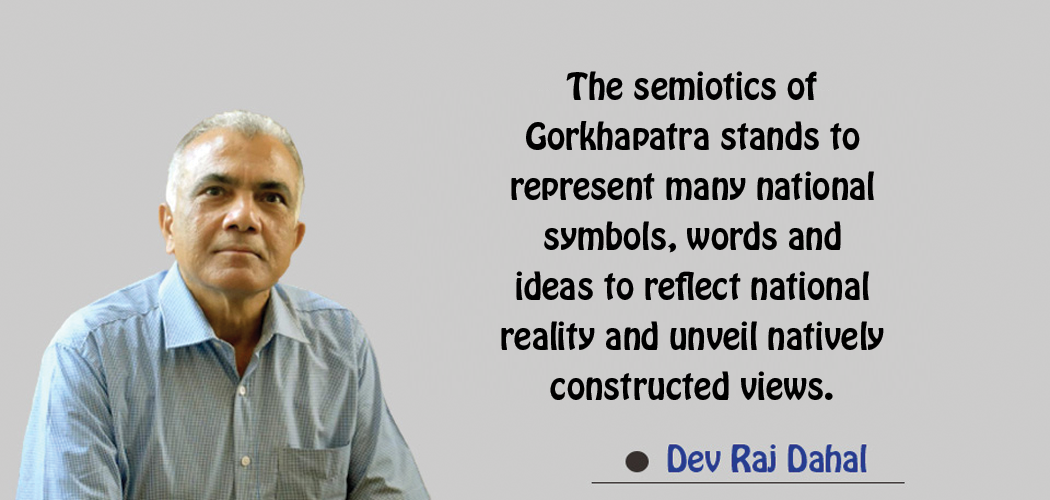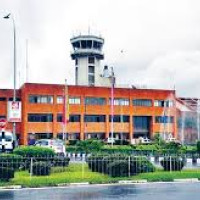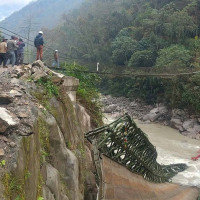- Saturday, 28 February 2026
Gorkhapatra: A Robust Public Media
Dev Raj Dahal
The self-perception of the press is the protector of public and national interests. Free and independent press is the ideal institution of democracy. It contributes to the formation of a cultural community, national identity and its projection in the international sphere. Nepal’s cultural syncretism manifestly separates it from the neighbours while its social diversity resonates with an extraordinary scale of freedom, tolerance and resilience. The defence of press freedom rooted in public interests can balance the nationwide communication as opposed to those driven by doctrinaire, commercial, partisan, infotainment or projectised media lacking either national awareness or the verve of emancipatory potential of modernity.
Those prompted by mere technological determinism are inclined to foster their clients’ knowledge and interests. An economic control of the press is stifling the free flow of information in the same way as its regimentation by the government. Both weaken transparency, voice and visibility of the public. This is precisely the reason democracy detests the business monopoly of the press, censorship and even innocent conformity to readers’ opinion which is governed by social prejudice with no adaptive and utilitarian benefits to ordinary Nepalis.
Rules of morality
The well-informed public sets the rules of morality for the press, furnishes the canon of critical judgment of people on vital issues, actors and institutions affecting their life and liberty and enables leaders’ quest for the dissemination of democratic progress. The free press with human sensation reforms the malaises of the social order by exposing them and enforcing the accountability of authority aiming to rationalise society, modernise the state and spur the nation’s effort to actively participate in the modern world. Nepal’s each democratic change has generated the need for media proliferation representing the asymmetry of social life.
Initiated by Rana Prime Minister Dev Shumsher in 1901 as a weekly newspaper to daily one since 1961, the national Nepali language daily Gorkhapatra has travelled a long journey to serve as an intellectual platform, build overall national consciousness through value transmission and shape public opinion and popular expectation. It is celebrating the sustained feat of legendary roles of how it has contributed, as the oldest newspapers in the country, in the various spheres of public life thereby becoming a part of intellectual tradition, carrier of the nation’s history and heritage and common fund of knowledge.
Obviously, Gorkhapatra has grown by leaps and bounds, despite tumultuous times, winding path and discontinuous state of press freedom under various regimes that incubated authoritarianism, bred violent conflicts and declared the state of emergency in the nation. It has occasionally stumbled press into the pitfalls of absolute conformism while other times self-corrected through satirised writings, exposed the hypocrisy of power elites and provided impetus for social reforms and change. Judiciary and civil society have contributed to the impetus of press freedom.
Now, Gorkhapatra has widened the outreach mechanism from the elite orbit to the mass, urban to rural areas and national language, the lingua franca, to multi-lingual vernacular local spheres and territorialised domain to digitised global space, thus transmitting and translating ideas across various societies, nations and cultures. It has improved its access to a global audience with substantial focus of international news and views thus helping Nepalis to keep abreast of scientific and geopolitical trends and enable the nation’s safe adaptation. In the process, it has standardised the scale and stock of information, knowledge and commentaries, shaped the nation’s overall worldview and furnished the agenda of public life based on national standpoints.
The regionalisation of its publication has amplified its scope and affirmed the validity of why media pluralism in Nepal’s heterogeneous culture is needed for the articulation and communication of each social strata and how centripetal forces of society can be mobilised for a cohesive nation building. No other single daily boasts itself of competing Gorkhapatra even if its vocational ethics claims neutral, objective, professional, non-partisan and truth-seeking. Subsidised by the Nepali state for non-profit making, the messages of Gorkhapatra have also become interdisciplinary from history, art and architecture, sports, culture, literature, language, environment, social life, politics, economics to international relations.
It has separate sisterly magazines to cater the interests of various groups of society such as Yuba Manch for youth, Madhuparka for literary community and intellectuals and Muna for children to fire the imagination of each generation of Nepalis and add impulse to their continuous socialisation, Nepalisation, reflection and expression of their creativity. They offer opportunities for various shades of people to contribute views, exert visible influence on the polity and shape the nation’s destiny.
The coverage pays particular attention to the issues of women and downtrodden elements of society adding more and more voices and the visibility of the diverse Nepalis. They constitute an effective public sphere to deliberate on issues of general public interests and public policy and pass the messages and information to people enabling them to judge the condition of Nepali society, economy and polity. It is vital to protect the integrity of the press, keep democratic oversight and its positive contribution to control the growing erosion of both public institutions and the institutions of enlightenment.
Its sister publication English daily The Rising Nepal, started in December 1965, continues to serve as a medium of communication to the wider world and enables the outsiders to learn about the splendour and diversity of Nepali life. It has the burden to fill the void left by the demise of English weekly Sunday Dispatch. Multiple and interdisciplinary information channels are integrating disparate elements of Nepali society and the state for an unified national life thus bridging the knowledge gap between political heartland, Kathmandu, and the nation’s periphery.
The relative interest of state-owned dailies and weeklies lies in fostering autonomously the free flow of information as opposed to most of private media indulged in commercial interest, partisan media spoiled by ideological conformity and indoctrination, foreign press reflecting geopolitical concerns, social media lacking social decency and democratic coherence and many others providing momentary pleasure to leadership by pleasing them, not revealing the human condition of the nation. A number of private newspapers, imbued with self-reference and projectised by external funding, reveal the revolutionary absence of the sanity of national wisdom and tradition, turn to postmodernism and subsidiary identity politics, a caricature of external media narrative regardless of their contribution to national affinity, utility and unity of Nepali nation.
They seek an anti-Kantinian version of lawless freedom of the press without social and national solidarity and accountability. The tonal dissimilarity between Gorkhapatra and others is, therefore, colossal. The semiotics of Gorkhapatra stands to represent many national symbols, words and ideas to reflect national reality and unveil natively constructed views thus producing thoughts to the educated public for refinement, use, interpretation and verification of conceptual and practical life. By contrast, manufacturing opinion refeudalises the society, weakens the power of public sphere to influence public policies, laws and decisions and stifles enlightened opinion essential to help Nepalis exercise conscience, choice and preference about public matters and renew democratic politics affirming the constitutional vision of sovereignty of people and creation of an egalitarian society.
Now, this Nepali public has ceased to be a passive spectator of events and trends in many spheres of life. They prefer social inclusion and participation and relish personal freedom affirming the concept of “personal is political.” Many of them invoke their right to know embedded in the constitution, demand the rationality of action of public and private authorities, keep due diligence and participate in communication through letters to the editor, expression of opinion, furnish articles and views through a combination of text, sound, visuals and images and educate the public on matters of public and high-profile national interest issues.
Informed citizenry
They have thus become very critical which is an essential aspect of informed and engaged citizens often seeking the rationality of politics, economy and leadership, their motives and interests. It is time for Gorkhapatra and its sisterly publications to examine moral self-scrutiny, plan for the future in a world of rapidly changing paradigm of every aspect of human relations and offer matter-of-fact education and options for building the capacity of Nepalis to peacefully articulate and communicate the constructive spirit of democratic politics. It helps to utilise vital information seeking to balance between global standards of the modern society and specific needs and interests of Nepali society.
Since there are many roles Gorkhapatra and its sister publications have played in shaping the nation’s evolution, the former's continuity has no match in both expanding the diversity of ideas and contents and pumping the elements of social modernisation. An active role of public media cannot be a substitute for other channels of communication and information flow less caring for democratic recession underway owing to downward spiral of many development indicators upon which free and fair media can flourish and enlarge civic space for social modernisation, rationalisation and democratisaation and the construction of vigilant democratic citizenship in Nepal.
(Former Reader at the Department of Political Science, TU, Dahal writes on political and social issues.)
















